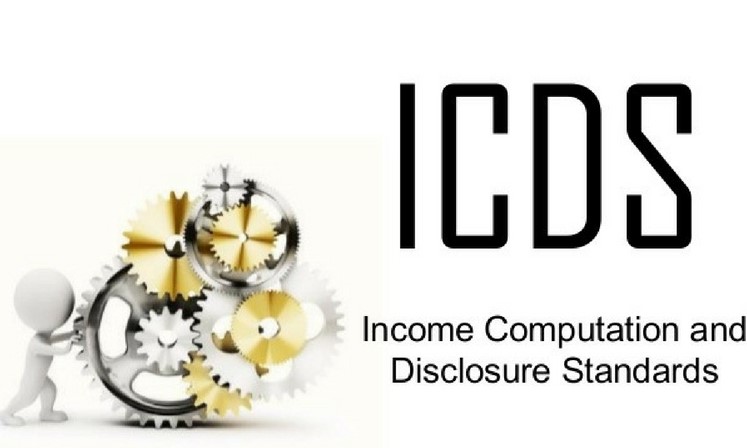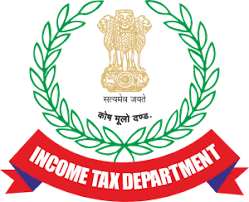In exercise of the powers conferred by sub-section (2) of section 145 of the Income-tax Act, 1961, the Central Government notified the Income Computation and Disclosure Standards (“ICDS”) to be followed by all assessees following the mercantile system of accounting, for the purposes of computation of income chargeable to income-tax under the head “Profits and gains of business or profession” or “Income from other sources”.
ICDS do not apply to assessees following cash method of Accounting. So far, 10 ICDS have been issued by the Government. Each of the ICDS, in preamble, states that ‘this Income Computation and Disclosure Standard is applicable for computation of income chargeable under the head “Profits and gains of business or profession” or “Income from other sources” and not for the purpose of maintenance of books of accounts’. Thus, prescription of ICDSs is not applicable for maintenance of books of account even under mercantile system of accounting. As the provisions of ICDS are applicable for computation of income under the regular provisions of the Act, the provisions of ICDS shall not apply for computation of book profit under section 115JB of the Act. However, as AMT under section 115 JC of the Act is computed on adjusted total income derived by making specified adjustment to total income computed under regular provisions of the Act, the provisions of ICDS will apply for computation of AMT. The general provisions of ICDS shall apply to all persons (e.g., Banks, Non-banking financial institutions, Insurance companies, Power sector etc.) unless there are sector specific provisions contained in the ICDS or the Act. The provisions of ICDS shall also be applicable for computation of income on gross basis (e.g. interest, royalty, fees for technical services under section 115A of the Act) for arriving at the amount chargeable to tax. The CBDT has issued ten ICDS as follows:
(a) ICDS I relating to Accounting Policies – This ICDS deals with application of significant accounting assumptions and policies in computation of income for the purposes of the Act. Financial statements of an assessee reflect his state of financial affairs. They form the base for computation of taxable income under the Act.
(b) ICDS II relating to Valuation of Inventories – The concept of inventory as well as the term `inventory’ as defined in para 2(1) of this ICDS contemplates business. Although sub-clause (iii) of clause (a) of the
para 2(1) dealing with materials and supplies to be consumed in the production process or in rendering of services does not specifically refer to business, even in that sub-clause the existence of business is
contemplated.
(c) ICDS III relating to Construction Contracts – A construction contract is a contract negotiated for the construction of an asset or a combination of assets. A construction contract, by nature entails time and resources. In cases where the activity continues for more than a year, the question is whether the contractor is to be taxed in the year in which the work is completed or proportionately over all the years?
(d) ICDS IV relating to Revenue Recognition – This Income Computation and Disclosure Standard is based on Accounting Standard 9–Revenue Recognition. While some of the principles contained in AS 9 have been adopted in this ICDS, there are also certain significant differences between the ICDS and AS 9.
(e) ICDS V relating to Tangible Fixed Assets – This ICDS covers assets being land, building, machinery, plant or furniture held with the intention of being used for the purpose of producing or providing goods or services and not held for sale in the normal course of business.
(f) ICDS VI relating to Effects of Changes in Foreign Exchange Rates – This ICDS corresponds to Accounting Standard (AS) 11 – The Effects of Changes in Foreign Exchange Rates issued/notified by ICAI/MCA and Indian Accounting Standard (Ind AS) 21 – The Effects of changes in foreign exchange rates, notified vide the Companies (Indian Accounting Standards) Rules, 2015.
(g) ICDS VII relating to Government Grants – This ICDS deals with the meaning, scope, forms, point of taxation and disclosure aspects of government grants. Although the Finance Act, 2015 expanded the
definition of ‘income’ to include all kinds of government grants save asset specific grants, there are many aspects such as the year of taxation or capitalization, refund mechanism, point of recognizing grants, treatment of grants in relation to group of assets etc., the guidance for which is available in this ICDS.
(h) ICDS VIII relating to Securities – ICDS VIII is divided into two parts. Part A deals with securities held as stock-in-trade by taxpayers but does not apply to securities held by taxpayers engaged in the business of
insurance, securities held by mutual funds, venture capital funds. Securities held by banks and public financial institutions are also excluded from the purview of Part A. Specific provisions have been
incorporated in Part B of this ICDS for scheduled banks and public financial institutions.
(i) ICDS IX relating to Borrowing Costs – This ICDS would need to be considered for the purposes of section 36(1)(iii) of the Act regarding deduction of interest paid in respect of capital borrowed for the purposes of the business or profession, and explanation 8 to section 43(1) of the Act, regarding interest which cannot be capitalised. It will also apply for the purposes of clause (iii) of section 57 of the Act, for deductibility of interest under the head “Income from Other Sources”.
(j) ICDS X relating to Provisions, Contingent Liabilities & Contingent Assets – This ICDS specifically excludes provisions, contingent liabilities and contingent assets resulting from financial instruments, executory contracts and insurance business from contracts with policyholders. It also excludes such transactions from financial instruments, irrespective of whether the financial instruments are held
as investments or as stock-in-trade.
For ready reference of our readers below is the list of ICDS and corresponding notified Accounting Standards:

The Central Board of Direct Taxes has issued certain clarifications on ICDS through Circular No. 10/2017 dated 23rd March, 2017
READ DOWNLOAD: ICDS
****
Don’t miss the next Tax Update / Article / Judicial pronouncement
Subscribe to our newsletter for FREE to stay updated on GST Law
Resolve your GST queries from national level experts on GST free of cost
TW Editorial Team comprises of team of experienced Chartered Accountants and Advocates devoted to spread the knowledge of GST amongst the various stakeholders.




